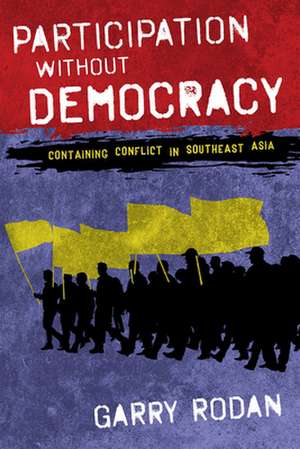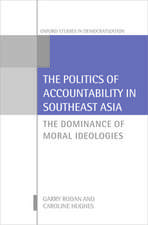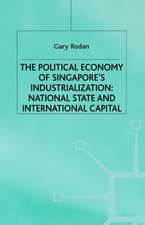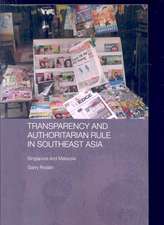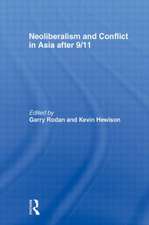Participation without Democracy – Containing Conflict in Southeast Asia
Autor Garry Rodanen Limba Engleză Paperback – 14 mai 2018
Downing deftly traces the genealogical connection between reading and art in classical antiquity, nineteenth-century realism, and modernism, attending to the ways in which the modern re-enchantment of the world--both in nature and human society--consciously engaged ancient practices that aimed at preternatural prediction. Of particular significance to the argument presented in The Chain of Things is how the future figured into the reading of texts during this period, a time when the future as a narrative determinant or article of historical faith was losing its force. Elaborating a new theory of magic as a critical tool, Downing secures crucial links between the governing notions of time, world, the "real," and art.
| Toate formatele și edițiile | Preț | Express |
|---|---|---|
| Paperback (1) | 313.45 lei 6-8 săpt. | |
| MB – Cornell University Press – 14 mai 2018 | 313.45 lei 6-8 săpt. | |
| Hardback (1) | 722.91 lei 6-8 săpt. | +32.60 lei 4-10 zile |
| Wiley – 14 mai 2018 | 722.91 lei 6-8 săpt. | +32.60 lei 4-10 zile |
Preț: 313.45 lei
Nou
59.100€ • 65.19$ • 50.43£
Carte tipărită la comandă
Livrare economică 21 aprilie-05 mai
Specificații
ISBN-10: 1501720112
Pagini: 300
Dimensiuni: 151 x 227 x 22 mm
Greutate: 0.44 kg
Editura: MB – Cornell University Press
Descriere
Over the past quarter century new ideologies of participation and representation have proliferated across democratic and non-democratic regimes. In Participation without Democracy, Garry Rodan breaks new conceptual ground in examining the social forces that underpin the emergence of these innovations in Southeast Asia. Rodan explains that there is, however, a central paradox in this recalibration of politics: expanded political participation is serving to constrain contestation more than to enhance it.
Participation without Democracy uses Rodan's long-term fieldwork in Singapore, the Philippines, and Malaysia to develop a modes of participation (MOP) framework that has general application across different regime types among both early-developing and late-developing capitalist societies. His MOP framework is a sophisticated, original, and universally relevant way of analyzing this phenomenon. Rodan uses MOP and his case studies to highlight important differences among social and political forces over the roles and forms of collective organization in political representation.
In addition, he identifies and distinguishes hitherto neglected non-democratic ideologies of representation and their influence within both democratic and authoritarian regimes. Participation without Democracy suggests that to address the new politics that both provokes these institutional experiments and is affected by them we need to know who can participate, how, and on what issues, and we need to take the non-democratic institutions and ideologies as seriously as the democratic ones.
